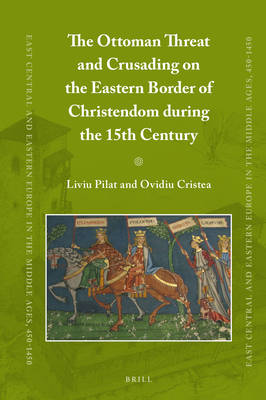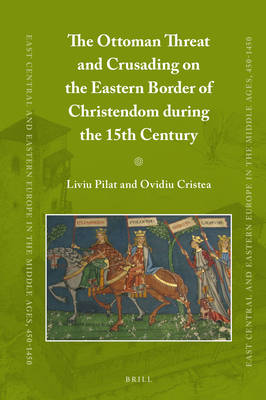
Door een staking bij bpost kan je online bestelling op dit moment iets langer onderweg zijn dan voorzien. Dringend iets nodig? Onze winkels ontvangen jou met open armen!
- Afhalen na 1 uur in een winkel met voorraad
- Gratis thuislevering in België vanaf € 30
- Ruim aanbod met 7 miljoen producten
Door een staking bij bpost kan je online bestelling op dit moment iets langer onderweg zijn dan voorzien. Dringend iets nodig? Onze winkels ontvangen jou met open armen!
- Afhalen na 1 uur in een winkel met voorraad
- Gratis thuislevering in België vanaf € 30
- Ruim aanbod met 7 miljoen producten
Zoeken
The Ottoman Threat and Crusading on the Eastern Border of Christendom During the 15th Century
Liviu Pilat, Ovidiu Cristea
€ 211,51
+ 423 punten
Omschrijving
In The Ottoman Threat and Crusading on the Eastern Border of Christendom during the Fifteenth Century Liviu Pilat and Ovidiu Cristea focus on less-known aspects of the later crusades in Eastern Europe, examining the ideals of holy war and political pragmatism. They analyze the Ottoman threat and crusading as political themes through a unifying vision based in the political realities of the fifteenth century and the complex relationship between crusading, Ottoman expansion, and the political interests of the Christian states in the region. Approaching the relationship between the borders of Christendom and crusading as a highly complex phenomenon, Pilat and Cristea introduce new elements to the image of Latin Christendom's frontier from the perspective of Catholic-Orthodox relations, frontier ideology, and crusading rhetoric in political propaganda.
Specificaties
Betrokkenen
- Auteur(s):
- Uitgeverij:
Inhoud
- Aantal bladzijden:
- 346
- Taal:
- Engels
- Reeks:
- Reeksnummer:
- nr. 48
Eigenschappen
- Productcode (EAN):
- 9789004278851
- Verschijningsdatum:
- 20/10/2017
- Uitvoering:
- Hardcover
- Formaat:
- Genaaid
- Afmetingen:
- 157 mm x 236 mm
- Gewicht:
- 612 g

Alleen bij Standaard Boekhandel
+ 423 punten op je klantenkaart van Standaard Boekhandel
Beoordelingen
We publiceren alleen reviews die voldoen aan de voorwaarden voor reviews. Bekijk onze voorwaarden voor reviews.











